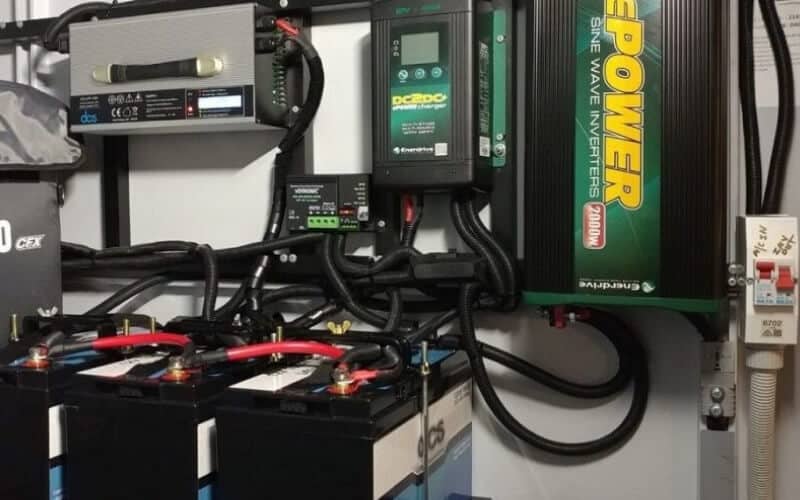There are a few ways in which a battery can be charged using the converter.
Rv converter not charging battery.
Sometimes a buildup of greenish or white corrosion can get to a point where the batteries can t receive a charge or receive a minimal charge.
If it is not ensure all power has been disconnected from the converter charger.
A couple of converters depend on a resistor to control the voltage to the 12 volt dc system and the onboard batteries.
Or you can even put the vehicle into shore power for around 8 hours.
Batteries also charge when the motor of your motorhome or tow vehicle is running or when you re running your.
It s best to remove the batteries when not in use and store them in a dry and cool place to recharge.
It should be energized whenever the rv is connected to shore power or a generator you will hear it click when it senses the power come on.
If you do not have an inverter with this capability your conventional converter charger will recognize the battery is at 10 5 volts and throw a 13 6 volt charge to the battery until it reaches 12 6 volts and shut off.
It might not even be a true technical fault.
If your battery could be fully charged the resistor is probably the culprit here.
The rig still draws out power even when you re not actively using the vehicle.
An rv converter charger that converts the power from the grid into 12 volt dc and then channels this to the adapter is fitted into every rv.
Most often though battery capacity depends on the type of charging cycle you conduct prior to operation.
Another cause why your rv battery won t charge is that there might be a broken wire on an open conductor that is between the battery and the converter.
It could also be hooked up to the grid at home through a 15 or 20 amp power outlet.
If the battery is sulfated it will draw down to 11 volts very quickly which would make the co detector chirp.
With this idea in mind dave talks about the difference between a static fill which can lead to sulfation deteriorated.
As dave mentions there could be a few different causes if you discover a battery not charging properly on your rv.
When your rv is connected to an electric outlet the batteries charge.
Check the resistor voltage with a multimeter and see if it s in a suitable range or not.
The camper could be hooked up to the electrical grid via a 30 or 50 amp outlet at a campground national park or state park.
Any type of breakage in the system may cause the battery not to charge.
Test the transfer relay switch also called the solenoid which allows charging voltage to be sent to the coach battery.
If your rv converter not charging batteries when plugged into shore power you need to take a close look at the contact posts of your rv batteries.

